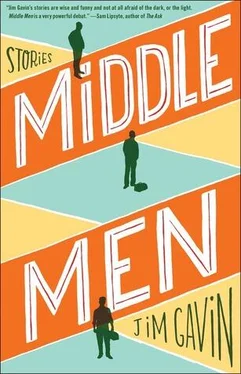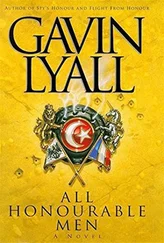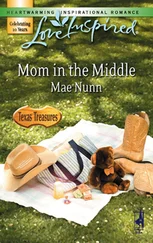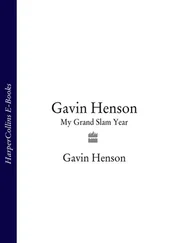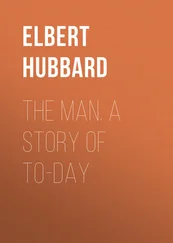“I miss you,” she said one night over the phone, sounding disappointed in herself.
“Let’s get a place.”
I was down at the liquor store. Sunset was choked with evening traffic; I could barely hear her, but I knew she was laughing at me. I didn’t care that we had only known each other for a couple months. I kept imagining us on a nice couch, listening to records.
“You wouldn’t want to live with me,” she said.
“Yes, I would.”
“I’m a mess,” she said. “I’m better off living alone.”
“No one’s meant to live alone. I won’t let you.”
Tired of the van, we took over Maria’s master bedroom, upstairs. Her husband had carved the four-poster bed himself. A giant crucifix hung over the dresser. We would spend hours in bed, talking and staring at the bronze Christ. On some evenings, when Karen didn’t have to be anywhere, she would sit down and play the piano. This was the only time in my life that I listened to classical music. Nocturnes, she said, sounded best on a Bösendorfer. Maria always requested Chopin, which Karen played in a trance. Sometimes I’d take Maria out to the back patio to get some fresh air, and the music sounded even better from a distance. In those moments there was a shape to the summer heat; I felt like I was discovering something that had always been around me, but that I had never noticed before.
Most of her clients were in Santa Monica. On my days off I drove Karen to her appointments. Usually I would drop her off and go to the beach or a record store, my two compass points, but one afternoon she asked me to come up and meet the family she was working for. The Teagues lived north of Wilshire in a house with a bright Mediterranean facade. Fountains, pillars, cypress trees. The Teague boys, six and eight, were handsome and earnest, just like their mother, Andrea, who wasn’t much older than Karen. They had become friendly, and Karen often stayed at their house for dinner. As Karen gave the boys their lessons, Andrea showed me around the house and pointed out the kitchen window to the pool, a peferct square of turquoise surrounded by sharp green hedges. It was a picture of the future I wanted. I would live with Karen and we would have a pool.
“You and Karen can come swimming anytime you want,” she said.
“Thanks,” I said, but I knew I didn’t want to swim in their pool.
“She’s been through so much,” said Mrs. Teague, like she was talking about a refugee. For a moment I hated this woman, her dramatic, condescending tone. But then, opening a bottle of wine, she said, “She’s told me all about you, Brian.”
“Really?”
“She says you’re good to her.”
This felt like a letdown, but later, as we sat in traffic on the 10, Karen absently took my hand. The sky had turned pink behind the Hollywood Hills.
“You’re the only thing I’m good at,” I said.
I waited for her to laugh, but instead she curled her fingers into mine.
A few weeks later we drove out to my parents’ house in Pomona. My mom had sounded worried when I told her how old Karen was, but not long after we arrived, I became totally redundant to the proceedings. Karen immediately started telling my mom about her mom, dead now for six years. She talked about her mom’s fight against cancer in the same tone she had told me about the sexual exploits of her youth. Spilling it all out and waiting for my mom to flinch in disgust. My mom, who had lost her brother and several close friends to cancer, never flinched. They talked and talked, and I just sat there, listening as they eventually moved on from the topic of death to the topic of me. They formed an instant consensus about my shortcomings as a human being. My mom pointed to my baggy shorts and T-shirt.
“He walks around like he’s shipwrecked,” she said.
“He’s a bigger slob than me,” Karen said, looking thrilled. It was an ambush.
My dad, who had been outside most of the day working the grill, looked at me with sympathy. But I didn’t want it. I had never felt happier. I imagined Karen and my mom running errands together, buying dishes at Target. My mom eventually did this, just a few weeks ago, with another girl, my fiancée.
That night we rented a movie. Karen sat next to my mom on the love seat. My dad sat in his recliner and I had the couch to myself. Halfway through, Karen had fallen asleep with her head on my mom’s shoulder. The next day I called my mom and asked if she could loan me some money for us to put a deposit on a place, but she refused.
“She’s a sweet person,” she said. “But you’re too young to be involved with her.”
• • •
In late August, through the good offices of the mod freak whom Nathan had chatted up a couple months earlier, the Map got a chance to open for Stereolab at the Troubador. I told Karen about it, reluctantly, and she was excited to go. She wanted to meet my friends. When I picked her up, she was wearing a tight black dress. I hardly recognized her. Driving down Santa Monica Boulevard, I started to get knots in my stomach. She had already copped to some youthful starfucking and now, grimly and pathetically, I anticipated her reaction to Nathan. Though not a star, he qualified as some form of cosmic debris. I took a few wrong turns, my goal to make us late for the Map’s set.
“You just went in a circle.”
“I’m a little lost.”
“What’s wrong with you tonight?”
“Nothing.”
“It might be nice if you told me I looked nice.”
I never thought she cared about that kind of thing. I loved that about her.
“You look nice.”
“Fuck you,” she said quietly, in a resigned voice.
I pulled over and we talked. I told her I was worried she would like my friends more than me and that after tonight everything would become tangled and weird.
“I like that it’s just you and me,” I said. “I like being alone with you.”
She reminded me that her whole life, whether she was skating, in a band, or clearing trees after a storm, she was always part of a crew, always the only girl.
“It’s a platonic gangbang,” she said. “Then eventually I feel obligated to pick a body out of the pile. And then everyone hates me for it.”
“Do you like being alone with me?”
“I don’t mind it.”
Nathan was outside the club, interrogating one of the club promoters. I got his attention and he pointed to the marquee.
“They didn’t put our name up,” he said, flicking his cigarette in the gutter like some doomed antihero in a French movie. He started walking back into the club.
“Nathan, this is Karen.”
He gave her a brief nod. “Have you seen Mark? We’re setting up right now.”
I ignored him and we walked inside the empty club. I saw Javier fiddling with his drum kit. I waved to him and he jumped off the stage to say hello.
“Karen, I’m buying you a drink,” he said, taking her by the arm. “They gave us tickets for the bar, so it’s free.”
Gilbert joined us, waving politely to Karen, and we watched people slowly trickle in.
“I’m the oldest person here,” said Karen.
“It’s an all-ages show,” I said.
“Our Aunt Felicia is coming tonight,” Javier told Karen. “She’s probably way older than you.” He looked around the room, stupefied by history. “The Byrds played here.”
Nathan found us and announced that the Map wouldn’t go on until the crowd got bigger. “Where the fuck is Mark?”
“Calm down,” said Javier.
After a while the club promoter came over and told them they had to start right now. Two other opening acts were waiting to go on. Nathan bravely refused, and the promoter gave the old throat-slash signal to somebody we couldn’t see. Suddenly a bunch of tech guys rose up from the shadows like ninjas and began dismantling their gear. Javier ran over and begged them to stop, but it was too late. Nathan started screaming at the promoter and there was some pushing and shoving. Security removed Nathan from the premises. Karen and I helped them get their gear down from the stage. For a moment I paused and looked down at a few bright faces — curious and devoted kids who had come early to watch every band, even the ones they had never heard of.
Читать дальше
